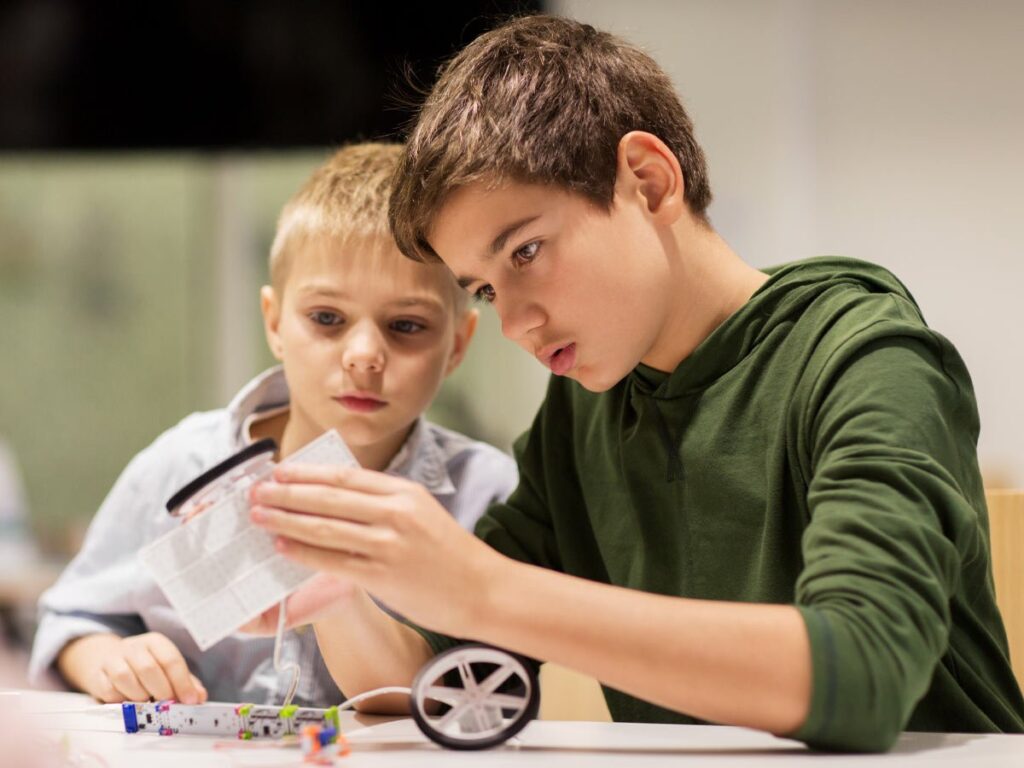Raising Emotionally Intelligent Kids Through Mindfulness
As a parent, you’re not just guiding your children through the world—you’re shaping the way they perceive their emotions, understand others, and navigate life’s challenges. In recent years, emotional intelligence (EQ) has emerged as a key factor in raising children who are not only smart but emotionally healthy and capable. Mindful motherhood, which centers around being present and fully engaged with your child, can be a powerful tool in cultivating emotional intelligence. By practicing mindfulness and emotional awareness, parents can create a nurturing environment that fosters strong emotional bonds and prepares children for life’s ups and downs.
What is Mindful Motherhood?
Mindful motherhood is a parenting style that focuses on being fully present in the moment, paying attention to your child’s needs, and responding with patience and understanding. It’s about connecting with your child on a deeper emotional level and being aware of both your own feelings and those of your child. Rather than reacting automatically or out of frustration, mindful motherhood encourages you to pause, reflect, and choose how to respond in a way that nurtures emotional development.
This approach requires practice and awareness, but it can significantly improve your relationship with your child and support their emotional growth. Mindful parenting doesn’t mean being perfect, but rather being aware of your emotions and how they influence your parenting style. It’s about accepting imperfections and being kind to yourself as you strive to be the best version of yourself for your child.
How Emotional Intelligence Enhances Parenting
Emotional intelligence (EQ) is the ability to recognize, understand, and manage your own emotions and the emotions of others. In children, EQ helps them build resilience, practice empathy, and develop healthy relationships with others. The foundation for developing emotional intelligence is laid in early childhood, and mindful motherhood plays a vital role in shaping these skills. Here’s how emotional intelligence enhances parenting:
- Improved Communication: When you practice mindful motherhood, you create an environment where your child feels heard and understood. This opens up more effective communication and reduces misunderstandings. By being emotionally aware, you’re better equipped to understand your child’s feelings and respond in a way that fosters trust and connection.
- Emotional Regulation: Parenting is full of stressful moments, and it’s easy to react impulsively. Mindful parenting helps you recognize your own emotional triggers and manage your reactions. This creates a calm environment where both you and your child can navigate difficult situations without escalating conflicts.
- Stronger Bonds: Mindful parenting fosters deeper emotional bonds between you and your child. By showing empathy and understanding, your child feels valued, loved, and safe. This secure attachment is critical for their emotional development and well-being.
How to Foster Emotional Intelligence Through Mindful Motherhood
Now that you understand the benefits of emotional intelligence and mindful motherhood, let’s look at practical ways to incorporate these practices into your daily life. These strategies can help you raise emotionally intelligent children who are more empathetic, resilient, and capable of managing their emotions effectively:
- Be Present: The first step to practicing mindful motherhood is being present. This means putting away distractions like phones and focusing on the moment. When you are fully present, you are better able to respond to your child’s emotional needs. Take time to listen actively and engage with your child during everyday moments, whether it’s during meals, playtime, or bedtime. Simple moments of connection can help strengthen your emotional bond.
- Label and Validate Emotions: Teaching your child to recognize and name their emotions is an essential aspect of emotional intelligence. When your child feels sad, angry, or frustrated, acknowledge their feelings by saying something like, “I can see you’re upset” or “It’s okay to feel angry sometimes.” This helps them understand that their emotions are normal and valid, reducing feelings of shame or confusion.
- Model Emotional Regulation: Children learn by example, so it’s important to model emotional regulation. If you feel frustrated or overwhelmed, explain to your child what you’re feeling and how you’re managing it. For example, you might say, “I’m feeling frustrated right now, so I’m going to take a deep breath to calm down.” This teaches your child that it’s okay to experience difficult emotions and that there are healthy ways to cope with them.
- Encourage Empathy: Empathy is a core component of emotional intelligence, and it’s something that can be nurtured from a young age. Encourage your child to consider the feelings of others by asking questions like, “How do you think your friend feels?” or “What can we do to help?” Encouraging your child to think about the emotions of others helps them develop empathy and kindness.
- Use Mindful Breathing Techniques: Mindfulness exercises, such as deep breathing, can help both parents and children manage stress and regulate emotions. Practice simple breathing techniques together to calm down during moments of tension or anxiety. For instance, try “breathe in for four counts, hold for four, and breathe out for four.” Doing this together not only helps your child manage emotions but also strengthens your bond.
Challenges of Mindful Motherhood
While mindful motherhood can have a profound impact on your relationship with your child, it’s not without its challenges. Being mindful in the midst of parenting demands can be difficult, especially when you’re tired, stressed, or overwhelmed. Here are some common challenges that parents face when trying to embrace mindful motherhood:
- Time Constraints: Life as a parent is busy, and it can be hard to find time to practice mindfulness. The key is to integrate mindfulness into your daily routine, even in small ways. Take a moment to check in with yourself before responding to your child, or practice mindfulness during everyday activities like feeding, dressing, or driving.
- Managing Expectations: Mindful motherhood doesn’t mean being perfect. There will be moments when you lose your patience or make mistakes. The goal is to be kind to yourself, learn from these experiences, and continue practicing mindfulness. Remember, mindfulness is about progress, not perfection.
- Consistency: Like any new practice, mindfulness requires consistency. It takes time to develop new habits, so be patient with yourself and keep practicing. Over time, mindfulness will become a natural part of your parenting style.
Conclusion: The Power of Mindful Motherhood
Mindful motherhood is more than just a parenting trend—it’s a powerful way to foster emotional intelligence, strengthen your bond with your child, and create a positive environment for emotional growth. By being present, validating emotions, modeling emotional regulation, and encouraging empathy, you can help your child develop the emotional skills they need to navigate life’s challenges. The practice of mindfulness in parenting not only benefits your child but can also bring a sense of peace and fulfillment to your own life.
Remember, mindful motherhood is about progress, not perfection. It’s about being aware of your emotions and taking steps to create a nurturing and supportive environment for your child. With practice, you’ll see how mindfulness can transform your parenting style and improve your relationship with your child, leading to a more emotionally intelligent and harmonious family life.
Did you find these tips helpful? Check out our other posts on parenting strategies and mindfulness practices to continue your journey towards more mindful, emotionally intelligent parenting!













